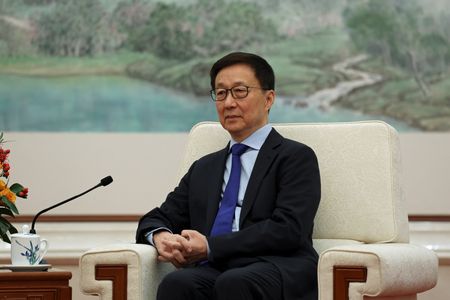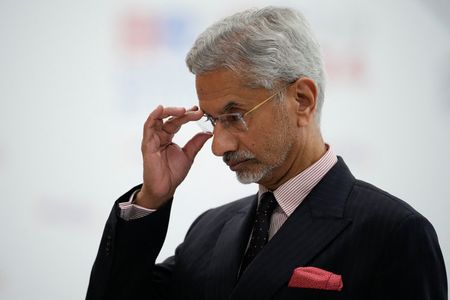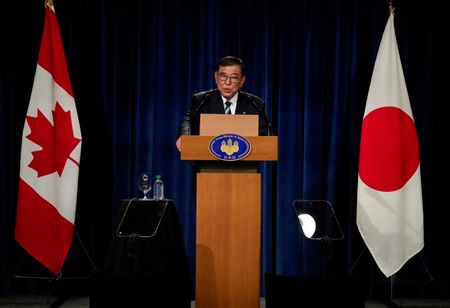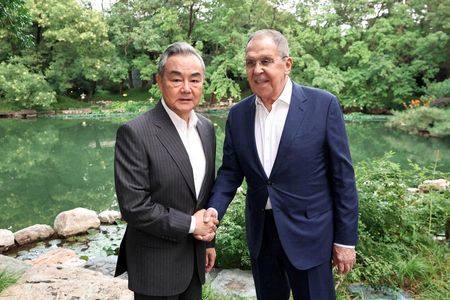BEIJING/NEW DELHI (Reuters) -India and China must resolve friction along their border, pull back troops and avoid “restrictive trade measures” to normalise their relationship, India’s foreign minister told his Chinese counterpart in Beijing on Monday.
India’s Subrahmanyam Jaishankar met Wang Yi in Beijing during his first trip there since 2020 when a deadly border clash between their troops led to a four-year military standoff and damaged ties until a thaw began in October.
“Good progress” in the past nine months for normalisation of relations is a result of the resolution of friction along their border, Jaishankar told Wang.
The positive momentum in bilateral relations is “hard-won and should be cherished”, Wang said, adding that the two countries should enhance political trust, properly handle differences and expand exchanges and cooperation.
“The two sides should trust each other rather than suspect each other, cooperate with each other rather than compete with each other,” Wang said, according to a readout from his ministry.
India and China share a 3,800 km (2,400 miles) border that is poorly demarcated and has been disputed since the 1950s.
They fought a brief but brutal border war in 1962 and talks over the decades to settle the dispute have made slow progress.
Last month, Indian Defence Minister Rajnath Singh told his Chinese counterpart that the two countries should seek a permanent solution to the border dispute.
“It is now incumbent on us to address other aspects related to the border, including de-escalation,” Jaishankar said, adding that it was also critical that restrictive trade measures and roadblocks be avoided to foster mutually beneficial cooperation.
The minister was speaking against the backdrop of Beijing’s restrictions in recent months on supplies of critical minerals such as rare earth magnets and machinery for manufacturing of high-tech goods.
India holds the world’s fifth-largest rare earth reserves but its domestic output remains underdeveloped.
“China is willing to strengthen communication and coordination with India to jointly safeguard the multilateral trading system and the stability of global industrial and supply chains,” Wang told India’s top diplomat.
Jaishankar, in China to attend the meeting of foreign ministers of the Shanghai Cooperation Organisation, met Chinese Vice President Han Zheng earlier in the day, the official Chinese news agency Xinhua reported.
India and China should steadily advance practical cooperation and respect each other’s concerns, Han told Jaishankar, Xinhua said.
(Reporting by Liz Lee, Qiaoyi Li, Xiuhao Chen and Shi Bu in Beijing, and Sakshi Dayal in New Delhi; Editing by YP Rajesh)










